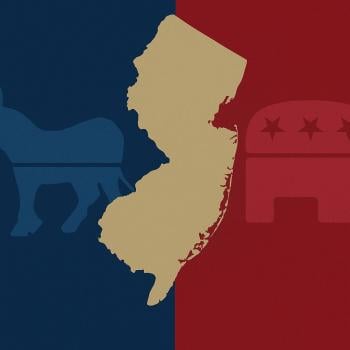We have been trained in the secular world to disregard life as something holy and to understand that our human potential is inextricably tied to our personal freedoms and our domination over those uncontrollable matters of life: death, pain, and joy. This is a great deception. The truth is, just as human expansion upon the earth depended upon someone being willing to explore those uncharted waters marked, "Here be monsters," our human potential can only grow when it is open to exploring the Unknowable. The vehicle for that exploration is faith. If the monsters of life are pain and suffering, fear and doubt, moving through them is what leads to discovery, growth, and -- yes -- holiness. God does not give us more than we can endure, but we cannot ascertain on our own precisely how much strength we have.
It is impossible to explore the depths of our potential, or its limits, if we steadfastly refuse to take the journey. But increasingly, that refusal is being regarded as wisdom.
In the United Kingdom, the House of Lords has proposed a bill to promote assisted dying for the terminally ill. The bill will "enable a competent adult who is suffering unbearably as a result of a terminal illness to receive medical assistance to die at his own considered and persistent request . . ."
On the surface, this seems like a humane idea; why not allow the terminally ill to choose when and how they will die? In the weeks prior to the public debate on the legislation, prominent members of the British press and certain politicians worked at guiding public opinion toward support of the bill. Journalist Polly Toynbee, writing in the Guardian about her mother's wish to end her ordeal with cancer, throws angry barbs at "the cult of the natural," which includes "the Archbishop of Canterbury and the Roman Catholic cardinal together claiming ‘the respect for human life in all its stages is the foundation of a civilised society.' That is a religious view humans must endure, whatever their creator ordains. But 80 percent of the population don't think the dying should suffer beyond what they can bear."
Right behind Toynbee's pained essay came Baroness Warnock in the Sunday Times announcing, "One of the things that would motivate me [to die] is I couldn't bear hanging on and being such a burden on people. . . . I don't see what is so horrible about the motive of not wanting to be an increasing nuisance. If I went into a nursing home it would be a terrible waste of money that my family could use far better."
Both women pish-posh the idea that, in suffering and death, something greater might be at work than what our limited, earthbound sensibilities can comprehend. Neither cares to look at how such a law might allow "assisted death" to become routine whenever someone deems that another's life is really not worth living.
Neither woman pauses to consider whether "assisted death," much like abortion, serves to cut off avenues of love before they are fully traveled. Nor do they seem to grasp what the "cult of the natural" and the "religious view" have been trying to teach: that life brings love, and love is God; that life interrupted is love interrupted, and love interrupted is God interrupted. Nor does either woman wonder what or who is served by such interruption.
This is a bill, and a mindset, that scream out: Give me only the pastels! And the only things that can come of them are a terrible social weakness that thwarts the means by which we may grow and be strengthened -- and a graceless and ignoble cultural death. For there is nothing noble or courageous in "not being a burden" on the family and finances, as the baroness recommends; rather, nobility is found in the humility of allowing oneself to be sick, in allowing others the opportunity to minister and grow through you and your ordeal. And while I cannot gainsay Toynbee's grief regarding her mother's death, I cannot agree with her that a quick injection could have put a better face on her mother's end-of-life experience.
I have read that in Holland, where human beings are routinely "assisted" to their death, some feel that closure is achieved by families as they gather about a loved one to say farewell before the injection is administered. I cannot help but wonder if that is genuine closure or an easy illusion. So much that is unutterable can be expressed in the clutch of a hand at a quiet bedside. Deep calls unto deep. Can it really be so cut and dry?
Did I mention how the Frenchwoman of my childhood came to her end? Not much to tell. There was nothing noble in her death, nothing glamorous or wise. Too many pills, too much vodka. Was it suicide or an accident? We never knew. I gathered, from the tones around me, that such an end was not really much of a surprise.
Nor is it surprising that this death-embrasure movement called "assisted death" is gaining momentum in Europe. Increasingly, the mood there seems to be one of pastel expediency; the proper response to hard realities and difficult situations has become two carefully placed hands over the ears and a faraway glance -- "No, no . . . it is too, too sad . . . Don't make us look; don't make us feel; don't make us engage. Whatever you do, don't make us get on that damned Via Dolorosa anymore."





